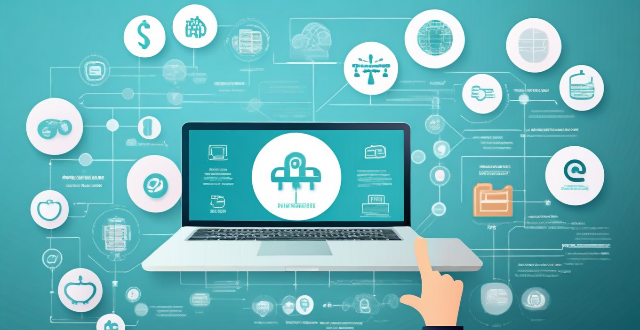The text provides a comprehensive guide on how to protect your privacy and security on your phone. It suggests updating your device and apps regularly, using a strong passcode or biometric lock, installing reliable antivirus software, being cautious with public Wi-Fi networks, using two-factor authentication, limiting app permissions, backing up your data regularly, being wary of phishing scams and suspicious links, using encrypted messaging apps for sensitive communications, and keeping your personal information private.

Best Ways to Protect Your Privacy and Security on Your Phone
1. Update Your Device and Apps Regularly
- Update Your Operating System: Keep your phone's operating system up-to-date with the latest security patches and bug fixes.
- Update Your Apps: Regularly update all your apps to ensure you have the latest security features and bug fixes.
2. Use a Strong Passcode or Biometric Lock
- Passcode: Use a strong passcode consisting of alphanumeric characters and symbols.
- Biometric Lock: Use fingerprint, facial recognition, or other biometric authentication methods for added security.
3. Install a Reliable Antivirus Software
- Antivirus Software: Install a reputable antivirus software to protect your device from malware and viruses.
- Regular Scans: Schedule regular scans to detect and remove any potential threats.
4. Be Cautious with Public Wi-Fi Networks
- Avoid Public Wi-Fi: Avoid using public Wi-Fi networks as they can be insecure and vulnerable to hacking.
- Use VPN: If you must use public Wi-Fi, use a virtual private network (VPN) to encrypt your internet connection and protect your data.
5. Use Two-Factor Authentication (2FA)
- Enable 2FA: Enable two-factor authentication for all your accounts to add an extra layer of security.
- Authenticator Apps: Use authenticator apps like Google Authenticator or Authy to generate one-time passwords for added security.
6. Limit App Permissions
- Review App Permissions: Review the permissions requested by each app and only grant necessary permissions.
- Revoke Unused Permissions: Revoke unused or unnecessary permissions from apps that no longer need them.
7. Back Up Your Data Regularly
- Cloud Backup: Back up your data to the cloud regularly to ensure you don't lose important information in case of device loss or theft.
- Physical Backup: Consider creating physical backups of your data, such as external hard drives or USB drives, for added protection.
8. Be Wary of Phishing Scams and Suspicious Links
- Phishing Scams: Be cautious of emails or messages asking for personal information, login credentials, or financial details.
- Suspicious Links: Avoid clicking on suspicious links or downloading attachments from unknown sources.
9. Use Encrypted Messaging Apps for Sensitive Communications
- Encrypted Messaging Apps: Use encrypted messaging apps like Signal or WhatsApp for sensitive communications to ensure your messages are secure.
- End-to-End Encryption: Look for messaging apps that offer end-to-end encryption to protect your conversations from being intercepted by third parties.
10. Keep Your Personal Information Private
- Privacy Settings: Review and adjust the privacy settings on your social media accounts and other online platforms to control who can see your personal information.
- Avoid Oversharing: Be mindful of what you share online and avoid oversharing personal information that could be used for identity theft or other malicious purposes.